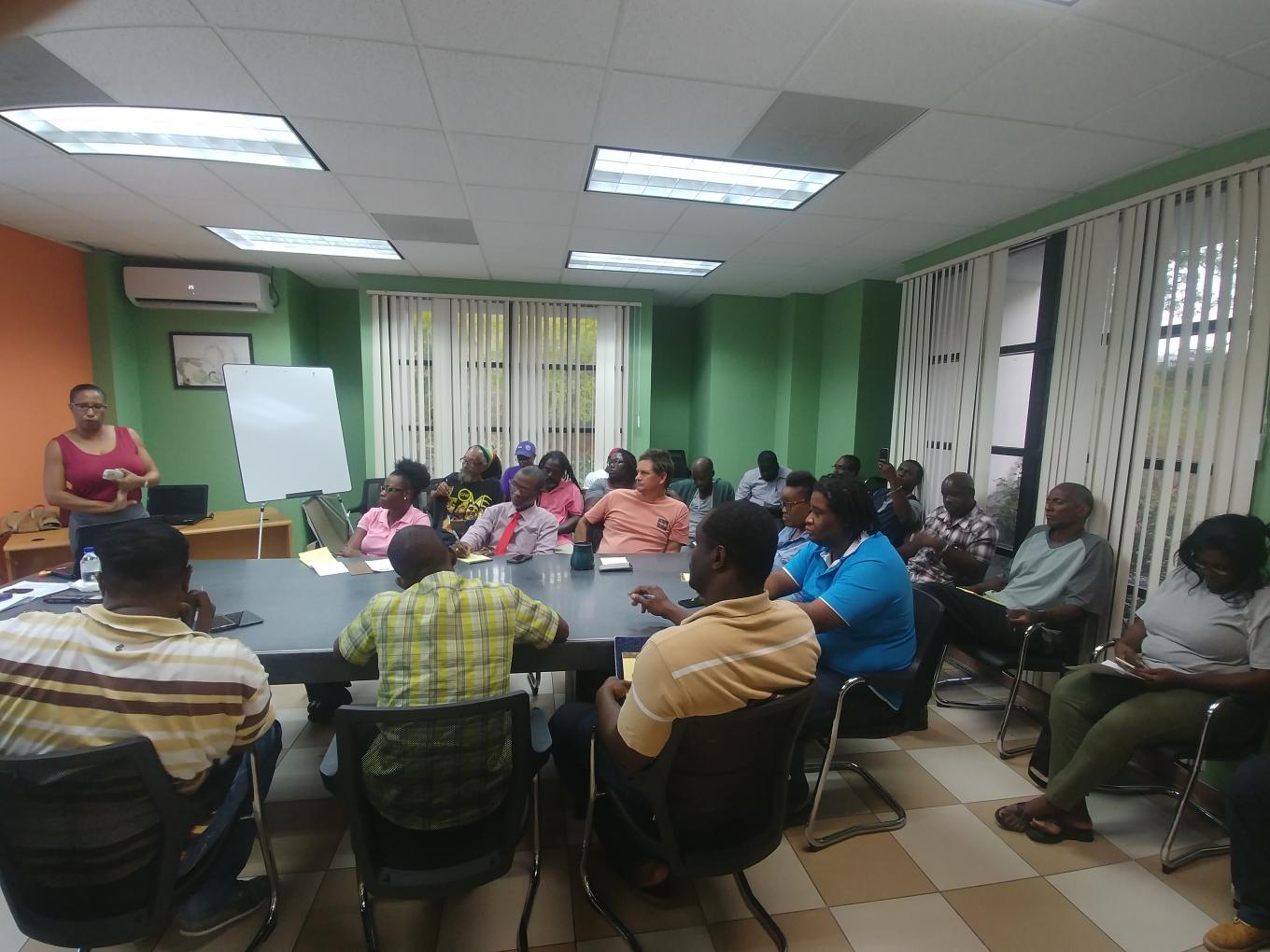The objective is to improve communication, efficiency and effectiveness.
Antigua and Barbuda, Friday 18 May 2018. The Inter-American Institute for Cooperation on Agriculture (IICA) collaborated with the Food and Agriculture Organization (FAO) to strengthen the governance and management of four local producer groups through their participation in workshop sessions.
The training activity helped to familiarize participants with key principles of management, pinpoint weaknesses in their present management structures, and highlight areas for improvement of management within their respective organizations.
The overall objective of the Workshops was to strengthen the Governance arrangements within each of the organizations to improve communication, efficiency and

effectiveness among their members. Based on participants feedback from previous workshops conducted by IICA and FAO and assessments conducted by IICA using an Organizational Capacity Assessment Tool (OCAT), specific areas of capacity building interventions were identified for each of the groups. This information was used to guide the training sessions on how much governance was needed for each of the groups.
A series of four training sessions were conducted on 8th, 9th, 15th & 16th May, 2018 with focus on the Developing Standard Operational Procedures and Strategic Planning with the objectives to improvement of management practices and procedures of the organizations as well as to provide direction for the successful operation of the organization. These workshops are aligned with the action plan developed for the capacity of producer groups a follow- up from a Governance session conducted in 2017 targeting the same groups addressing the Human Resource and Group Dynamics. The target producer groups are Team Fresh Producer Group (TFPC), the Southern Farmers Association, the Antigua and Barbuda Bee Keepers Cooperative and The Antigua and Barbuda Agriculture Forum for Youth (ABAFY).
Craig Thomas, National Specialist at IICA, challenged the groups “to share the information with all group members and immediately start to implement the strategies provided to the benefit the groups”. The training program is an initiative of IICA’s Flagship Project on Competitiveness and Sustainability of Agricultural Chain.
Effective producer groups can contribute to food and nutrition security, a key area identified during the stakeholders’ consultation on IICA is 2018-2022 Medium Term Plan.
More information:
Craig Thomas, National Specialist, IICA Delegation in Antigua and Barbuda











